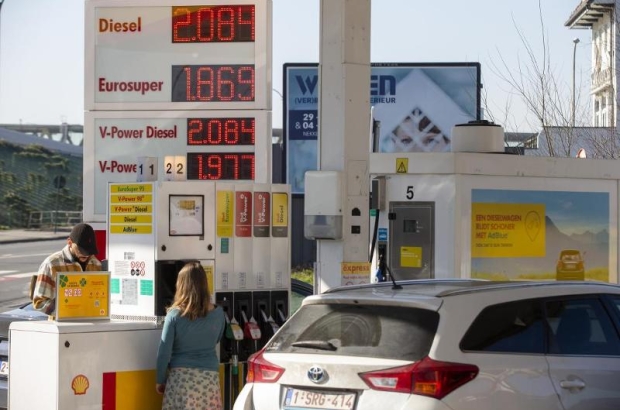- Daily & Weekly newsletters
- Buy & download The Bulletin
- Comment on our articles
Household credit, expanded VAT reduction: Belgium’s further measures to tackle energy crisis
The Belgian government held a restricted committee meeting on Monday evening to decide upon new measures meant to tackle the ongoing energy crisis, including a €200 household credit and extension and expansion of the current VAT reduction.
The government announced the measures in a press conference on Tuesday morning, RTBF reports, where they were met with criticism from opposition parties like PTB, whose president Raoul Hedebouw summarised the package by saying “the government promised a bazooka, but this is a water pistol”.
“A mere €0.17 reduction in excise duty, VAT at 6%, and during the summer... Energy prices are soaring. We can't fight a fire with a water gun. There is a need for much more,” Hedebouw said.
But others welcomed the measures, including majority parties, the FEB (Federation of Enterprises in Belgium) and employees' organisations, who call the energy agreement a good first step, with the expectation of more specific measures for companies soon.
Reduced and expanded VAT, household credit
Among the measures in the energy package is an expansion of the currently reduced 6% VAT for electricity, which will now apply to gas from April until the end of September.
For households that use oil or propane gas, a €200 credit will be applied to their bills.
Fuel at the pump, both petrol and diesel, will be also subject to an excise duty reduction of €0.175 per litre, which according to the government's calculations will represent savings of €10 on a 60-litre tank of fuel.
The package additionally extends until 30 September the broader social rate previously implemented, meaning more households will continue to qualify for reduced energy prices.
The total cost of all the measures is estimated at €1.3 billion, largely financed by the additional €1.08 billion in extra tax revenue generated by the price increase.
“We are giving back more than the additional tax revenue collected,” said prime minister Alexander De Croo.
The measures are likely to come into force “by the weekend,” according to minister of finance Vincent Van Peteghem, who explained that the King still needs to sign the decree before it can be published.
“This means that these measures will be implemented more quickly than in France and the Netherlands, where it will be done on 1 April,” De Croo pointed out.
Mixed reactions from parties and stakeholders
Consumer organisation Test Aankoop/Test Achats said the VAT reduction should have been implemented as early as September, believing that these measures are coming too late. But the FEB called the measures to reduce the heating and fuel bill “good initiatives in the short term.”
“In the coming days, we expect clarity on the future energy mix,” said CEO Pieter Timmermans.
“And this crisis shows once again that we urgently need to think carefully about the impact of energy and any second-round effects on the wage-price spiral and consequently the competitiveness of Belgian companies.”
Mobility organisation Touring said it was pleased with the temporary reduction in excise duty on fuel, and Belgian train company SNCB’s concerns about how the skyrocketing prices would effect service were assuaged by an agreement for the federal government to pay the difference, compensating SNCB for an estimated €13 million in 2022.
But business organisation Unizo reacted to the energy package with disappointment, citing the lack of concrete measures for companies.
“The measures announced by the government are mainly aimed at families,” said managing director Danny Van Assche, adding that he finds it “incomprehensible” that the government is waiting for the results of a study by the National Bank on the consequences of rising energy and raw material prices before taking measures for companies.
“The situation of companies is at least as precarious as that of households,” Van Assche said.
Photo : Filling station in Brussels on 5 March © Belga/Nicolas Maeterlinck















Comments
Belgians pay the most in taxes. In other countries with high taxes, citizens have lots of benefits. Here, it all goes in the many levels of government and their slow and inefficient administrations.